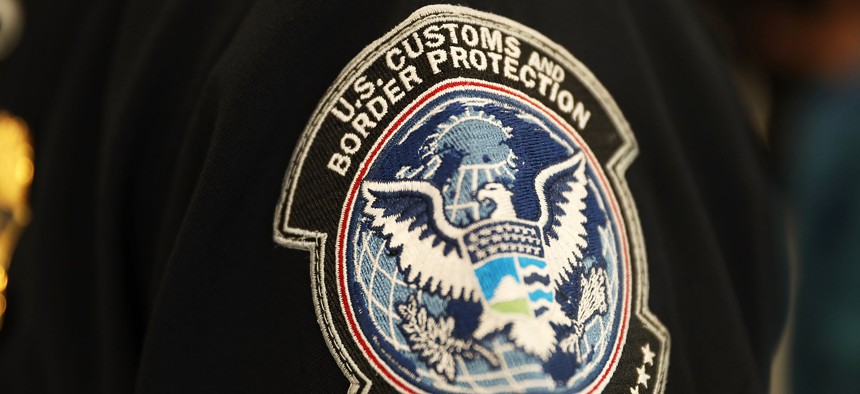Autonomous tech featured in Senate border and foreign aid bill

Joe Raedle/Getty Images
The Senate’s proposed $118 billion immigration and foreign aid package includes more than $260 million to deploy emerging technologies to secure the border.
The Senate’s bipartisan border security and foreign aid package released on Sunday would allocate millions of dollars toward the deployment of innovative technologies along the U.S.-Mexico border, including more autonomous systems and new artificial intelligence capabilities.
The 370-page, $118 billion proposal — which also includes supplemental funding for Ukraine and Israel — would tighten the asylum process, expedite deportations and close the southern border if migrant encounters cross a set threshold.
A one-pager on the bill’s border security components emphasized the limits it would place on illegal immigration, although it noted more broadly that its new authorities would “put powerful new tools in the border security toolbox of any administration willing to secure the border.”
James Lankford, R-Okla., the chief negotiator of the bipartisan legislation, said in a statement that the proposal “provides funding to build the wall, increase technology at the border and add more detention beds, more agents and more deportation flights.”
The bill would provide U.S. Customs and Border Protection with $758.5 million for procurement, construction and improvements, with more than half of that funding — $424.5 million — being allocated toward the “acquisition and deployment of non-intrusive inspection technology.”
Those non-intrusive tools, the text said, would be purchased through an open competition focused on acquiring “innovative technologies that improve performance, including through the integration of artificial intelligence and machine learning capabilities.”
An additional $260 million would be allocated to CBP to use for border security technology, while the remaining $74 million would be set aside for the “acquisition and deployment of air assets.”
The bulk of the tech-focused border security funding — $170 million — would go toward deploying autonomous surveillance tower systems “in locations that are not currently covered by such systems or technology.”
The bill defined these autonomous surveillance towers as “integrated software and/or hardware systems that utilize sensors, onboard computing and artificial intelligence to identify items of interest that would otherwise be manually identified by personnel.”
Additional funding would also be allocated for mobile surveillance capabilities, including “mobile video surveillance systems and for obsolete mobile surveillance equipment replacement, counter-UAS and small unmanned aerial systems.”
The bill stated that none of the allocated funding “shall be used for the procurement or deployment of border security technology that is not autonomous.”
While the Senate is expected to hold an initial vote on the proposal by this Wednesday, the bill’s prospects in the lower chamber already appear grim. In a Monday statement from House Republican leadership, top GOP lawmakers said “any consideration of this Senate bill in its current form is a waste of time” and called it “dead on arrival in the House.”






